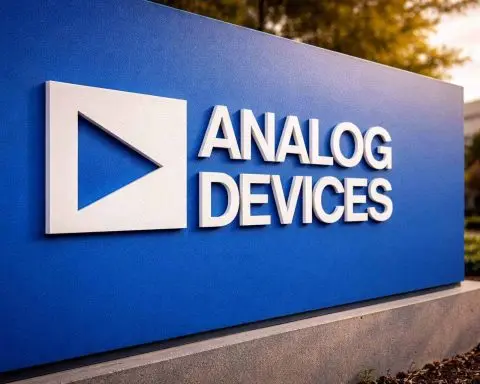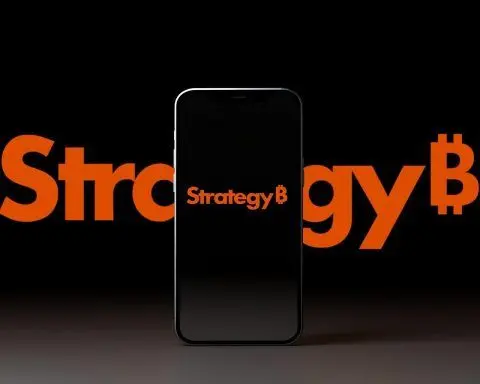- Monaco reached 100% fiber-optic broadband coverage in 2023, with copper DSL retired at the end of 2023 under the Extended Monaco program.
- Monaco Telecom is the sole major fixed broadband provider, with the state owning 45% and NJJ Holding owning the remainder.
- Residential fiber speeds include 100 Mbps for €39.99/month, 1 Gbps for about €59.99/month, and 10 Gbps for around €99.99/month, with installation free and bundles that include TV and landline.
- Business fiber offerings reach up to 10 Gbps with symmetric uploads up to 2 Gbps, plus static IPs, cloud storage, and service level agreements for reliability.
- Monaco’s 2 km² area enables ubiquitous deployment, making fiber access essentially available to every building except those under renovation.
- In 2021 Monaco claimed the fastest average download speeds worldwide at about 226 Mbps, with median speeds rising to about 247 Mbps by early 2024, roughly comparable to France’s median of 287 Mbps.
- Monaco became the first country in Europe with full nationwide 5G coverage in 2019, and by 2025 5G blankets 100% of the territory.
- Monaco Telecom’s 5G rollout uses Huawei and Ericsson gear, with indoor 5G in public venues and coverage extending to tunnels and underground parking.
- Starlink is available in Monaco in 2025, with residential kits costing roughly €300–€450 upfront and service around €50–€80 per month, delivering typically 50–200 Mbps down and 20–40 Mbps up, with 20–50 ms latency.
- Satellite options include VSAT and Konnect, with Starlink Maritime offering multi-hundred Mbps at sea for about €250/month, complementing land networks for yachts and backup connectivity.
Fixed Broadband Access in Monaco (Fiber Optics)
Monaco boasts 100% fiber-optic broadband coverage as of 2023 monacolife.net. The sole major ISP, Monaco Telecom, completed a four-year rollout under the government’s “Extended Monaco” digital program, replacing old DSL copper lines entirely monacolife.net. Residents and businesses can now get fiber-to-the-premises at various speed tiers. Standard home plans range from 100 Mbps (Basic) up to 10 Gbps (Premium) service monaco-telecom.mc. For example, Monaco Telecom’s residential packages include 100 Mbps for €39.99/month, 1 Gbps for ~€59.99/month, and premium 10 Gbps plans around €99.99/month monaco-telecom.mc monaco-telecom.mc. Installation is free, and bundles include TV and phone service (unlimited calling to many countries) monaco-telecom.mc monaco-telecom.mc. Business fiber offerings likewise reach 10 Gbps with enhanced upload (up to 2 Gbps), static IPs, cloud storage, and SLAs for reliability monaco-telecom.mc monaco-telecom.mc. In fact, Monaco Telecom advertises “Ultra High Speed” Pro Fiber at 10 Gbps to accelerate the Principality’s digital transformation hellomonaco.com monaco-telecom.mc.
Coverage and performance: Because Monaco is a dense city-state (just 2 km²), fiber deployment is ubiquitous – essentially every building (except those under renovation) can be connected monacolife.net. The legacy DSL network is being phased out (residential copper internet was turned off at end of 2023) monacolife.net. This aggressive upgrade has made Monaco a global leader in fixed broadband speeds. In 2021 it even claimed the fastest average download speeds worldwide (~226 Mbps) worldpopulationreview.com, and median speeds have since climbed further as gigabit fiber became the norm (median ~247 Mbps by early 2024) datareportal.com. These speeds rival or exceed those in much larger tech hubs. For context, France’s median is ~287 Mbps en.wikipedia.org – Monaco’s fully fibered network puts it in the very top tier globally.
ISPs and competition: Monaco Telecom is the primary (virtually monopoly) provider for fixed internet, due to a historical concession agreement with the state itu.int. The government retains a 45% ownership stake, partnering with Xavier Niel’s NJJ Holding which owns the remainder livinginmonaco.com. A few niche operators exist – e.g. PacketHub S.A. (a small ISP with ~5% market share) provides specialized connectivity or hosting pulse.internetsociety.org – but they serve a tiny fraction of users. Overall, Monaco’s internet market is not liberalized in the way EU countries are. The Internet Society rates consumer ISP choice in Monaco as “very poor” given the lack of competition pulse.internetsociety.org. However, the upside is that the single operator, closely overseen by the government, has heavily invested in quality. Independent audits found Monaco’s telecom services to be “among the most advanced…and at prices lower than all comparable states” news.mc. In other words, despite limited competition, residents enjoy excellent service and fairly competitive pricing for the high-end speeds provided.
Pricing and plans: On a per-megabit basis, Monaco’s fiber prices are reasonable. The entry-level 100 Mbps at ~€40/month is enough for casual use, and 1 Gbps for ~€60/month caters to heavy streamers or home offices monaco-telecom.mc. The top 10 Gbps tier around €100/month is expensive but delivers extreme performance (downloading a HD movie in seconds). There are also introductory discounts – e.g. many plans are ~€10–20 off for the first year monaco-telecom.mc monaco-telecom.mc – and bundling with Monaco Telecom mobile service yields additional savings monaco-telecom.mc monaco-telecom.mc. Data caps are nonexistent on fixed broadband (all home fiber plans are truly unlimited usage). Latency on fiber is excellent (often <5 ms locally), and reliability is high due to modern infrastructure. The fiber rollout also benefits businesses: companies can obtain symmetrical gigabit links, guaranteed uptime with 8-hour repair guarantees, and even automatic 4G/5G failover keys for redundancy monaco-telecom.mc monaco-telecom.mc.
Coverage caveat: The only minor coverage gaps might be buildings under construction – those will get fiber once renovations finish monacolife.net. Essentially any resident can sign up for fiber by contacting Monaco Telecom (the provider will run the fiber drop into the premises if not already present). Given the Principality’s small size and wealth, fiber coverage effectively reaches 100% of households – a milestone achieved by Monaco ahead of most countries monacolife.net.
Mobile Internet: 4G and 5G in Monaco
Monaco was an early adopter of 5G mobile technology, becoming the first country in Europe with full nationwide 5G coverage back in 2019 itu.int livinginmonaco.com. Monaco Telecom operates the lone mobile network, and it has aggressively built out infrastructure: over 99% of the territory has strong 4G LTE coverage, and as of 2025 5G signal blankets 100% of Monaco, even in challenging spots like tunnels and underground parking garages news.mc. The 5G rollout (using Huawei/Ericsson gear) was part of the Extended Monaco initiative to modernize digital services. Visitors and residents today enjoy a seamless “ultra broadband” mobile experience – you can watch, download, play, and video-call anywhere, anytime over 5G monaco-telecom.mc.
Mobile operators: Monaco Telecom is the de facto only MNO (mobile network operator) in the Principality itu.int. Unlike its neighbors, Monaco does not have multiple competing carriers. However, French networks (Orange, SFR, Bouygues, Free) spill over the borders – their signals cover parts of Monaco and roaming agreements exist itu.int. Many Monégasque residents still choose the local operator for a +377 number and tailored plans. Monaco Telecom, jointly owned by the state and NJJ (Xavier Niel), leverages its ties to international telecom groups to stay cutting-edge livinginmonaco.com. Its monopoly is balanced by government oversight on pricing: regulations cap mobile tariffs to within ~30% of French prices to ensure Monaco Telecom remains affordable despite lack of local competition itu.int news.mc. In 2021 the state renewed Monaco Telecom’s telecom concession for 20 years, creating a strategic committee (with government and consumer representatives) that meets annually to review mobile service quality and prices for competitiveness news.mc. So while there’s no independent telecom regulator, the government actively monitors the mobile sector.
Mobile plans and pricing: Monaco Telecom offers a range of 4G/5G plans, often incentivizing customers to bundle with home broadband. For instance, a popular Live Connected 5G plan provides 100 GB of data plus unlimited calls/SMS in Monaco, France and throughout Europe for about €45/month (or ~€60 on a standalone basis) monaco-telecom.mc monaco-telecom.mc. A higher Live Traveller 5G plan includes 200 GB and expands unlimited calls to North America for ~€79.99/month bundled (standard €129 without broadband) monaco-telecom.mc monaco-telecom.mc. There are also cheaper options: a basic Live Essential plan with unlimited calls/texts (but minimal data) costs as low as €11.99 for broadband customers monaco-telecom.mc. In general, data allowances are generous – 70 GB, 100 GB, 200 GB tiers – reflecting Monaco Telecom’s strategy to compete with EU carriers’ roaming packages. EU roaming is included, meaning a Monaco SIM can be used across Europe much like an EU SIM (despite Monaco not being in the EU). This is important because without it, Monégasque subscribers would face roaming fees just steps outside their country. Fortunately, Monaco has negotiated inclusion in the “Roam-like-at-home” zone, so customers enjoy their data across France/EU at no extra cost monaco-telecom.mc monaco-telecom.mc.
Network speeds: Real-world mobile speeds in Monaco are excellent. In 4G areas, typical downloads range from ~30–150 Mbps. Under 5G coverage, users frequently report hundreds of Mbps. The network can deliver gigabit-class speeds in ideal conditions – Monaco Telecom demonstrated ~1 Gbps 5G throughput at launch – though everyday speeds vary. According to Speedtest data, Monaco’s average mobile download speed hovers well above 50 Mbps (global avg ~56 Mbps) and likely in the 80–150 Mbps range for 5G users, on par with leading European networks. While not the absolute fastest in the world (countries like UAE or South Korea top mobile speed charts), Monaco’s mobile internet is highly performant and consistent given the small cell network density. Importantly, 5G coverage is not just outdoors – the carrier has installed indoor 5G systems in public venues and even extended coverage to subterranean spaces (parking garages, rail station) to ensure continuous connectivity news.mc. This is a boon for daily life and big events (like the Monaco Grand Prix), where tens of thousands of visitors can all stay connected with ample bandwidth.
Use cases: The near-ubiquitous 4G/5G means residents can rely on mobile data for most internet needs on the go. Many use 4G+/5G routers as backup home connections too. However, mobile data is pricier per GB than fiber broadband. Heavy home users or businesses would not replace fiber with cellular except as a fail-safe. That said, for a small apartment or short-term resident, a 100 GB mobile plan could suffice without a fixed line. The latency on 5G (~20 ms) is low enough for gaming and video calls, though still a bit higher than fiber (<5 ms). One noteworthy niche: Monaco’s extensive yacht community. Yachts in port or near shore can tap Monaco’s 5G network for high-speed internet at sea, a valuable perk for those who live and work on vessels. The combination of total 5G coverage + coastal geography effectively blankets local waters with connectivity, until ships venture further out and switch to satellite.
Satellite Internet Options (Starlink and Others)
Given Monaco’s complete fiber and 5G coverage, satellite internet is not commonly needed on land – but it is available. In 2025, SpaceX Starlink service can be used in Monaco as part of its global expansion. Starlink’s constellation of low-Earth orbit satellites provides high-speed broadband virtually “everywhere” on Earth, including the skies above Monaco starlink.com. According to Starlink’s availability map, Monaco (and the entire Mediterranean region) is within the active coverage zone. This means residents could order a Starlink kit, although demand is likely limited to special cases (remote construction sites, backup links, or users dissatisfied with the sole ISP). The Starlink residential kit costs roughly €300–€450 upfront (for the dish hardware) and around €50–€80 per month for service in Europe politico.eu politico.eu. Speeds typically range from ~50 Mbps up to 200 Mbps or more down, with ~20–40 Mbps up, depending on network load. Latency is around 20–50 ms – much better than old geostationary satellites (600+ ms), though still a bit higher than Monaco’s terrestrial networks.
Installation and use: To use Starlink in Monaco, one must have a clear view of the sky (the dish needs to electronically steer toward satellites overhead). This can be challenging in Monaco’s dense urban landscape – tall buildings or cliffs could obstruct the dish’s view. Many apartment dwellers may need permission to mount the small dish on a rooftop or balcony. Local building regulations might apply, as Monaco tends to be strict about aesthetic additions on building exteriors. However, there are no known legal restrictions against using Starlink in Monaco – the government has not publicly objected to private satellite terminals, and Starlink is officially supported in the country reddit.com. (Monaco’s telecom laws focus on licensed operators, but personal satellite use falls outside the traditional framework and is generally permitted.) Still, users should inform their property owner/HOA before installing an obvious satellite dish. Once set up, Starlink operates like any ISP – users get a Wi-Fi router from the dish, with unlimited data (Starlink currently has no data caps in most regions).
Alternative satellite providers: Aside from Starlink’s LEO system, traditional geostationary satellite internet is technically available in Monaco as well. Companies like Viasat, Inmarsat, or Eutelsat Konnect offer Ka-band satellite broadband across Europe, including the French Riviera. A resident could subscribe to a service like Tooway/Konnect which uses a 70cm dish pointed at a geostationary satellite. However, these legacy options are far less attractive: they typically max out at 20–50 Mbps speeds, have very high latency (~600 ms), and often enforce strict data caps (e.g. 50 GB per month). The costs can be high (equipment €300+ and €50+ monthly for modest bandwidth). In Monaco’s context, such services would only appeal if someone had no fiber/5G – a scenario virtually nonexistent on land. Regulations for these satellite systems are straightforward: Monaco honors international telecom treaties, so owning a satellite terminal is allowed. Users might need to register very large dishes, but small consumer terminals are plug-and-play. The primary use of geosat internet in Monaco is for maritime and mobility. Yachts that sail out of Monaco’s harbor switch to satellite internet on open waters. Many superyachts use VSAT systems (from providers like Marlink, OmniAccess, etc.) for continuous connectivity at sea. Now, even yachts are adopting Starlink Maritime service, which for ~$250/month provides multi-hundred Mbps at sea – a game-changer for the yachting community compared to old VSAT plans. Notably, Monaco being a major yachting hub means satellite internet is an important complement to its onshore networks.
Starlink for businesses: Businesses in Monaco generally won’t rely on satellite as primary internet (fiber is readily available for nearly every office). But Starlink could serve as a resilient backup for critical operations. In the rare event of a terrestrial network outage (e.g. a fiber cut disrupting Monaco’s single upstream route to France), a Starlink connection could keep a business online. Installation is quick (just mount the dish and power it up), and no local infrastructure is needed. As such, some banks or enterprises might keep a Starlink kit on standby for emergency redundancy, given the Principality’s focus on digital resilience in its Extended Monaco strategy itu.int itu.int.
Regulatory perspective: Monaco so far has embraced new technologies as part of its digital innovation agenda. There hasn’t been publicized resistance to Starlink or similar systems. The only regulatory consideration is that Monaco Telecom’s exclusive license theoretically covers “public telecom services” in the Principality itu.int. Since Starlink is an OTT (over-the-top) service delivered from space, it doesn’t break the letter of that monopoly – it’s akin to a user deploying any personal antenna system. If Starlink uptake grew large, Monaco might introduce some light oversight or require registration, but as of 2025, using satellite internet privately is legal and unregulated beyond general radiofrequency rules. Users do not pay telecom tax or license fees for it. In short, satellite internet is available but mostly irrelevant for everyday Monaco residents thanks to the stellar fixed and mobile networks on the ground. Its key role is for connectivity on yachts, in aircraft, or as a backup during terrestrial outages.
Internet Infrastructure and Government Initiatives
Monaco’s digital infrastructure is exceptionally advanced for its size, thanks to strong government direction. The Extended Monaco initiative (launched in 2019) is the flagship program guiding the Principality’s digital transformation en.gouv.mc. Under Extended Monaco, the government partnered with Monaco Telecom and other stakeholders to achieve several milestones:
- Full Fiber Optic Network: As noted, Monaco reached full fiber coverage, enabling gigabit internet to all premises monacolife.net. The government pushed this as part of “Smart Nation” goals to future-proof connectivity. Copper telephone lines are being retired completely by end of 2024 monacolife.net, making Monaco one of the first countries to go all-fiber.
- 5G Nationwide Deployment: Monaco famously became “the first country in the world to have a national 5G network” with 100% coverage by 2019 monaconow.com news.mc. This was achieved in partnership with Huawei and facilitated by Monaco’s single-operator model (easier to upgrade all sites in one go). It’s a point of pride and serves as a testbed for smart city applications (autonomous shuttles, IoT sensors, etc., can leverage the 5G network’s low latency).
- Public Wi-Fi and IoT Networks: The Principality has invested in complementary wireless infrastructure – for instance, a dense network of free public Wi-Fi hotspots in popular areas (Port Hercule, Monaco-Ville, conference centers). It also built an IoT network (LoRaWAN and NB-IoT coverage via Monaco Telecom) to support smart city devices (environmental sensors, smart parking systems). This ties into the broader strategy of using connectivity to improve quality of life and city management itu.int itu.int.
- Sovereign Data Centers and Cloud: A major infrastructure project was the launch of Monaco Cloud, the country’s own sovereign cloud data center. Operational since October 2021, Monaco Cloud provides secure local hosting for government and private data monaconow.com. It is built to high security standards (with VMware-based architecture technologymagazine.com) and ensures sensitive data (e.g. healthcare, finance) can be stored within Monaco’s jurisdiction. This reduces reliance on foreign cloud services and is part of Monaco’s digital sovereignty push. The data center also connects via high-bandwidth links to international internet exchange points in France, ensuring low latency access to global services.
- International Connectivity: Monaco, while independent, relies on physical links through France for global internet transit. There are a few high-capacity fiber optic cables that connect Monaco to internet backbones in Nice/Marseille. The upstream diversity historically was limited (Internet Society notes Monaco’s international routing diversity is “poor”, needing more than two distinct paths for full resilience) pulse.internetsociety.org pulse.internetsociety.org. In recent years, Monaco has worked to improve redundancy – adding additional fiber routes and securing peering agreements. Still, a single major outage in Nice could conceivably disrupt Monaco’s internet, so the government’s resilience plan includes alternatives like satellite backup and rapid repairs. So far, the country has had a stable connectivity record, with no significant internet shutdowns (0 outages reported in the last 12 months) pulse.internetsociety.org.
- Smart City and Digital Services: With robust internet infrastructure in place, Monaco has rolled out numerous digital public services. All 7,000 students in Monaco were provided with tablets and connected tools (Monaco was the first country to give a digital device to every schoolchild) monaconow.com. Government services are being digitized via the MonaGov portal – residents can do everything from renewing documents to paying taxes online. Electronic ID cards with digital signature capability were introduced to facilitate secure e-government transactions. Telemedicine platforms were expanded (especially during COVID) leveraging the high-speed connectivity. Also, the Extended Monaco program emphasizes digital inclusion – training citizens and businesses to use new tech effectively.
- Cybersecurity Infrastructure: Alongside connectivity, Monaco invested in cybersecurity. The Monaco Cyber Security Agency (AMSN) was established to protect networks and educate users. Given the high net-worth population and sensitive businesses in Monaco (banks, casinos), cybersecurity is crucial. There are ongoing campaigns about phishing awareness and securing Wi-Fi/email livinginmonaco.com livinginmonaco.com. The fiber and mobile networks are built with encrypted core systems and monitored for threats. Monaco even participates in international cyber drills to test the resilience of its internet infrastructure.
Overall, Monaco’s approach treats digital infrastructure as a strategic asset – on par with electricity or water for the nation’s functioning. The Prince’s government directly partners with the telecom operator and tech companies to ensure state-of-the-art systems. In a speech reviewing Extended Monaco, the Prince underlined that digital advancement is key to Monaco’s economic future and quality of life, from hosting major events (e.g. using 5G for live broadcasting the Grand Prix) to attracting businesses (fintech, telemedicine startups, etc.) itu.int itu.int. Future plans include exploring 6G research, expanding the sovereign cloud capacity (to possibly offer services beyond Monaco’s borders), and even early adoption of technologies like quantum communications for ultra-secure links in finance. In short, tiny Monaco is punching above its weight in internet infrastructure, viewing it as an essential foundation for a modern state.
Legal and Regulatory Environment
Despite not being in the EU, Monaco aligns closely with European norms on internet governance, data protection, and market regulation:
- Data Protection Laws: In late 2024, Monaco updated its data privacy legislation to mirror the EU’s GDPR (General Data Protection Regulation). The new Law n°1.565 (effective Dec 2024) strengthens personal data rights and imposes duties on businesses handling data cms.law. It created an independent regulator, the Personal Data Protection Authority (APDP), replacing the previous data commission cms.law. Monaco now mandates measures like consent for data processing, breach notifications, right to be forgotten, data portability, etc., much like GDPR. Companies must appoint Data Protection Officers and can be fined up to €10 million for violations cms.law cms.law. This legal reform ensures Monaco maintains “adequacy” with EU data standards, which is critical since many Monaco businesses exchange data with EU partners. The privacy law applies to any entity processing data in Monaco or targeting Monégasque residents cms.law. In practice, residents and expats in Monaco enjoy a high level of privacy protection. The secrecy of correspondence is even enshrined in Monaco’s Constitution, and the new law bolsters this by regulating digital communications. Data transfer agreements (for sending personal data abroad) must meet strict rules, often leveraging Monaco’s adoption of Council of Europe Convention 108+. For everyday internet users, this means their ISP, websites, and employers in Monaco are legally obliged to safeguard their personal information.
- Net Neutrality: Monaco does not have a specific net neutrality law on the books, but in practice the internet is open and neutral. Monaco Telecom, by policy, does not block or throttle lawful online content. There have been no reports of content-based discrimination – for example, VoIP services like Skype/FaceTime work normally, and video streaming is unrestricted (indeed Netflix, YouTube, etc. stream in 4K without issue on Monaco’s networks). While the EU’s net neutrality regulation (2015) doesn’t formally bind Monaco, the Principality has an interest in adhering to similar principles to foster innovation. The government’s concession agreement with Monaco Telecom includes commitments to “ensure the competitiveness and attractiveness” of services news.mc news.mc. It’s understood that introducing artificial slow lanes or paid prioritization would contradict these goals (and likely anger the highly connected customer base). Moreover, since Monaco Telecom competes indirectly with French mobile operators (which must follow EU net neutrality), it has little incentive to impose restrictions that could drive users to roam on French SIMs. In summary, net neutrality is respected de facto, even if not explicitly codified. All websites and apps can be accessed equally via Monaco’s internet. If any traffic management occurs, it’s only for network security or congestion reasons and must be disclosed. The strategic telecom committee can also intervene if Monaco Telecom’s practices were ever seen as anti-consumer news.mc.
- Monopoly and Competition Policy: Telecommunications in Monaco operate under a unique model: a public-private monopoly. Monaco Telecom holds exclusive licenses for fixed telephony, broadband, and mobile services itu.int. This was cemented by the 20-year concession renewed in 2021 news.mc. Unlike EU countries that enforce telecom competition (LLU, MVNOs, etc.), Monaco has chosen to trust a single operator but regulate it closely. The government’s reasoning is that Monaco’s market is too small to sustain multiple infrastructure providers; instead, a single operator can achieve economies of scale and then reinvest in cutting-edge tech (which Monaco Telecom demonstrably has, with full fiber and 5G rollout). To prevent abuse of monopoly power, Monaco uses price benchmarking and oversight. The National Council (parliament) and Government together review Monaco Telecom’s pricing against international prices annually news.mc. If prices are found much higher than in France or similar markets, pressure is applied to adjust them. In fact, studies by Tactis for the government showed Monaco’s telecom tariffs are generally lower than those in similar microstates or even nearby French Riviera towns, when normalized for service level news.mc. Additionally, alternative providers have limited but meaningful presence: e.g. PacketHub offers business connectivity (such as corporate VPN networks or datacenter links) which keeps Monaco Telecom attentive to enterprise client needs pulse.internetsociety.org. Also, the government could license a new ISP if Monaco Telecom were to underperform, so the threat of potential competition looms as motivation.
- Regulatory Bodies: Uniquely, Monaco has no independent telecom regulatory agency separate from the government itu.int. Instead, the Department of Digital Platforms and Resources (within the Government) handles telecom regulation and spectrum management. Radiofrequency spectrum (for mobile, Wi-Fi, satellite) is assigned by the state; Monaco follows international (ITU) norms for spectrum use. For example, Monaco coordinated closely with France on 5G frequency allocation to avoid interference. The absence of an arms-length regulator is mitigated by the small scale – stakeholders (government, Monaco Telecom, businesses) maintain direct communication. Consumer protection in telecom is enforced through the concession terms and general consumer law. If a user has a grievance (billing dispute, quality issue), they can appeal to Monaco Telecom’s internal arbiter and ultimately to the Monaco General Court. However, such cases are reportedly rare, as the provider tends to be responsive (likely due to its public ownership element).
- Internet Censorship and Content Regulation: Monaco does not engage in internet censorship. As a Western European jurisdiction, it upholds freedom of expression online. Websites are not blocked except if required under international law (for instance, sites hosting child pornography or terrorism-related content would be barred, as in any country). Monaco’s laws against online copyright infringement, hate speech, and defamation mirror French law – but enforcement is generally light in the consumer space. The government does monitor cybersecurity threats, so it may block known phishing or malware sites at the ISP level to protect users (often in coordination with the Cyber Security Agency) livinginmonaco.com. But for ordinary content (social media, news, VOIP), Monaco’s internet is open and unrestricted. There is also an emphasis on privacy of communications: the law and tradition strongly protect the secrecy of correspondence (which extends to emails and messages). Law enforcement surveillance online is tightly controlled and would require high-level authorization (Monaco has high privacy standards given its residents’ expectations). Netizens in Monaco can thus browse and post online without fear of political filtering or firewalls.
- Licensing of Services: Any company wishing to offer telecom services in Monaco (e.g. an international ISP or a new mobile operator) would need a license or concession from the government. In practice, Monaco has not issued additional licenses for public networks – Monaco Telecom remains the sole concessionaire. However, Monaco has welcomed virtual operators in niche areas like IoT: e.g. some IoT solution providers can deploy devices on Monaco Telecom’s network via agreement, and international carriers use Monaco as a hub (Monaco Telecom runs an international carrier business selling capacity, which is outside the consumer market). There are also Wi-Fi and fiber in-building providers for specific sites (for instance, the Grimaldi Forum conference center has a dedicated high-capacity connection by a third party for events). These arrangements are handled case-by-case under the telecom department’s oversight.
In summary, Monaco’s legal/regulatory environment ensures modern digital rights and robust oversight while maintaining a unique market structure. The new data protection law aligns Monaco with Europe’s stringent privacy regime cms.law. Monaco Telecom’s monopoly is balanced by public ownership and accountability mechanisms rather than by splitting the market. And the principality adheres to principles of open internet and tech-neutral innovation – making it an attractive place for both consumers and tech businesses (who get top-notch connectivity with minimal red tape). The approach seems successful: residents enjoy world-class internet performance with few of the downsides sometimes seen in monopoly markets.
Pros and Cons of Internet Options in Monaco
Finally, how do these different internet access types compare for someone living or doing business in Monaco? Here’s a quick rundown of the pros and cons of fixed broadband, mobile internet, and satellite internet in the Principality:
- Fixed Broadband (Fiber):
Pros: Ultra-fast speeds up to 10 Gbps (future-proof for years) monaco-telecom.mc; very low latency (ideal for gaming, stock trading, remote work video calls); unlimited data with flat monthly fees; highly reliable (fiber isn’t affected by weather and Monaco’s small size means stable infrastructure); nearly 100% coverage – available at essentially every address monacolife.net; free installation and quick setup; comes with extras like TV service and free landline calling. Fiber is perfect for businesses needing consistent throughput and households with many users/devices.
Cons: Only one main provider (no choice of ISP if you dislike Monaco Telecom’s service) pulse.internetsociety.org pulse.internetsociety.org; prices, while reasonable for the speeds, are higher in absolute terms than basic plans in bigger countries (e.g. ~€40 for 100 Mbps, whereas in some EU markets 100 Mbps might be €20-30 – though Monaco’s income levels are higher) monaco-telecom.mc monaco-telecom.mc. In practice, customer service and quality are good, but a monopoly can mean less competitive pressure. Another con is lack of portability – you’re tied to the connection at home/office; if you’re frequently on the move in such a small country, you might rely more on mobile data. Lastly, while rare, if the single network has an outage (fiber cut), users have no alternative wired network to switch to (some mitigate this by keeping a 4G/5G router as backup). Overall, for stationary use, fiber is the fastest and most cost-effective choice in Monaco (and indeed the default choice for almost everyone). The pros far outweigh the cons for fixed broadband. - Mobile Internet (4G/5G):
Pros: True mobility and convenience – your internet goes with you anywhere in Monaco or abroad. 5G coverage blanket means you can get high-speed access on the street, at a café, on a yacht, etc. news.mc. No installation required – just a SIM card or eSIM in your phone/hotspot. Great for transient needs or as a backup if your fiber goes down. Mobile plans in Monaco include generous roaming, so one SIM covers you across Europe (travel is seamless) monaco-telecom.mc monaco-telecom.mc. Speeds are very good – enough for HD streaming, video conferencing and even moderate remote work. 5G’s low latency can handle online gaming and VR in many cases. Also, Monaco Telecom offers discounts when bundling mobile with home internet, potentially saving money for dual users monaco-telecom.mc monaco-telecom.mc. For businesses, 4G/5G can serve as an instantaneous connection (no waiting for a line install) or as a failover link for continuity.
Cons:Data caps/cost: Mobile plans, even with big data buckets, are not truly unlimited – heavy users (e.g. 4K video streamers, large file uploaders) may find 100–200 GB limiting, and overage or top-up can be costly. You’ll pay a premium for large data: the top 200 GB plan is around €80 (bundled) or €130 standalone monaco-telecom.mc monaco-telecom.mc, which is far pricier than unlimited fiber at €60. So cost per GB is much higher on mobile. Also, mobile bandwidth is shared – at peak times (say during an event or rush hour), speeds might drop if many users are on the same cell. While 5G mitigates this with higher capacity, it’s not infinite. Latency/jitter on cellular is higher and less consistent than fiber, which can matter for certain enterprise applications. Another con: indoor coverage can sometimes be spotty in dense buildings (though Monaco has worked to improve this, you might need to be near a window for best 5G signal in a thick-walled building). For businesses, mobile cannot yet replace wired for guaranteed performance – there’s no SLA on consumer mobile, and factors like weather or cell load can affect it. Security-wise, mobile networks are very secure these days (SIM authentication, strong encryption), but companies handling very sensitive data might prefer the control of a wired link. In summary, mobile internet is fantastic for personal use on the go and as a complement to fiber, but it’s not the cheapest way to get large amounts of data and not as utterly stable as a fixed line for mission-critical connectivity. - Satellite Internet:
Pros:Global availability – works virtually anywhere, regardless of local infrastructure. In Monaco, this means if you’re on a boat off the coast or on an aircraft, you can still have internet. For a resident, satellite could serve as an independent backup to Monaco Telecom, ensuring connectivity even if local networks fail or in rare cases of political dispute (satellite bypasses local cables). Starlink in particular offers impressive speeds (100+ Mbps) and relatively low latency ~30 ms, making it feasible for regular internet use (unlike older satellites) politico.eu politico.eu. Installation is quick and user-managed – no need to schedule a technician; just set up the dish. Also, the newer satellite services have flexible plans – you can pause service month-to-month (useful if you only reside in Monaco part of the year or only need it seasonally for yacht trips). For businesses, satellite links can add redundancy for disaster recovery plans. Additionally, satellite internet is tech-neutral – it doesn’t route through Monaco Telecom, so it could be used to avoid any local throttling (though none is known) or surveillance. Basically it’s an outside channel.
Cons: For a well-connected urban place like Monaco, satellite internet is inferior to fiber/5G in almost all standard metrics: higher latency than fiber, generally lower speeds than local 5G, and typically far more expensive for the throughput you get. Starlink hardware is a few hundred euros upfront and ~$50–€100/month, which for many would be more expensive than just getting a gigabit fiber line that is 10× faster. Legacy satellite services are even worse on performance and often come with strict data limits (some give only 10–50 GB before slowing you down). Another con is weather and line-of-sight sensitivity: heavy rain can degrade satellite signals (rain fade), and Monaco’s tall buildings or the rocky terrain could block a low-angle view of some satellites (Starlink satellites move across the sky, so obstructions can cause dropouts if the dish’s view is limited). There’s also the inconvenience of installing and maintaining the dish – it needs a clear view and a stable mount; not everyone can put a dish on their balcony (some apartment rules forbid it). Moreover, regulatory support is minimal – if you have an issue with Starlink, you rely on SpaceX support remotely; Monaco Telecom won’t help you, and local shops likely don’t stock spare parts. In terms of reliability, satellite can be affected by space weather or satellite outages (Starlink is generally stable, but it’s a newer system). Finally, latency, while good for LEO, is still ~30-40 ms on average, which is fine for most uses but not as rock-solid as fiber’s single-digit ms (a pro gamer or high-frequency trader would notice the difference). In summary, satellite internet in Monaco is a niche option: great for specific use-cases (yacht at sea, backup link, etc.) but for a typical resident or business, the fiber and mobile networks are superior in speed, reliability, and cost-effectiveness.
Bottom line: Monaco in 2025 offers an enviable suite of internet access choices. Fixed fiber broadband is the go-to for almost everyone, delivering world-class speed and unlimited data at reasonable prices news.mc. Mobile 4G/5G keeps the Principality constantly connected, enabling a truly mobile digital lifestyle (and serving as a handy supplement or backup to fiber) news.mc. Satellite internet, while not mainstream on land, is a cutting-edge option that extends connectivity to Monaco’s maritime and travel contexts – and stands as a testament to how even space-based internet is now within reach of this small nation. Residents and businesses can mix and match these options to suit their needs, confident that Monaco’s policy of tech advancement and its substantial investments in infrastructure have created one of the fastest, most connected environments on the planet worldpopulationreview.com. The pros for living in such a digitally advanced locale – lightning-fast downloads, ubiquitous wireless coverage, and global connectivity – clearly outweigh the minor cons. In the “smart Principality” of Monaco, internet access has truly become as seamless and reliable as any other modern utility, underpinning both daily life and future innovations.
Sources: Monaco Life (Tech) monacolife.net monacolife.net; Monaco Telecom (official site) monaco-telecom.mc monaco-telecom.mc; Monaco Telecom concession renewed – News.MC news.mc news.mc; Living in Monaco (Government info) livinginmonaco.com; Internet Society Pulse – Monaco Report pulse.internetsociety.org pulse.internetsociety.org; CMS Law – Data Protection Monaco cms.law.









